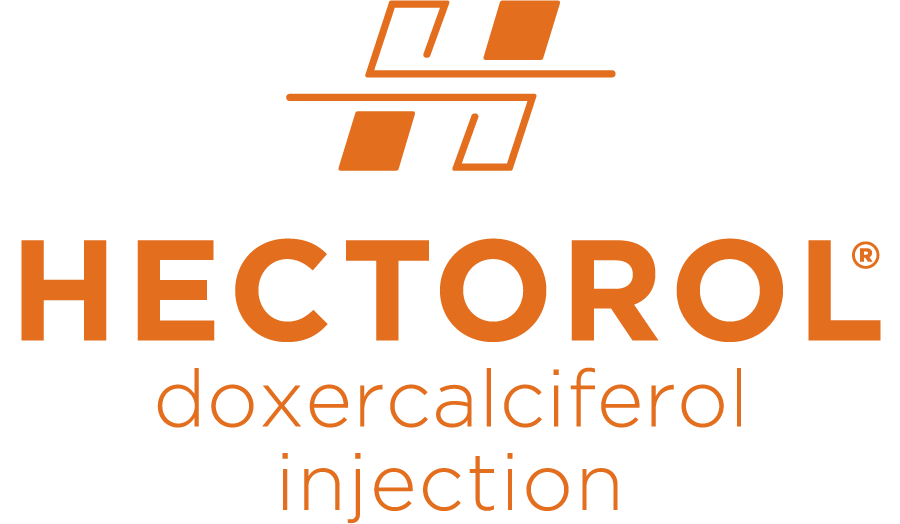
Hectorol Injection Prescribing Information Healthcare Professionals For U.S. Residents Only
About the Disease
-
What is chronic kidney disease (CKD)?
When you have CKD, your kidneys aren’t healthy.1 As a result, they are less able to filter waste products, maintain the right balance of fluids and minerals in your body, and activate certain hormones.1
You should not take Hectorol (doxercalciferol) if you have a history of abnormally high calcium blood levels (hypercalcemia) or if you have very high vitamin D levels.2
-
What are the different stages of CKD?
There are 5 stages of CKD that your doctor may discuss with you.3 In stage 5, kidneys will need the support of dialysis.3
-
What is parathyroid hormone (PTH)?
The parathyroid gland checks the levels of calcium and phosphorus in your body and sends out a hormone to control those levels.4 This hormone is called PTH.4,5
When your kidneys aren’t healthy, they are not able to activate vitamin D, so your body can have trouble maintaining the right balance of calcium and phosphorus.1,5 Low calcium levels will cause the parathyroid gland to send out too much PTH.1,5 When you have too much PTH, you may have secondary hyperparathyroidism (SHPT).4,5
-
Why is SHPT bad for me?
Over time, hyperparathyroidism can cause serious problems with your bones, lungs, and heart.5,6 It can result in too much calcium being taken from your bones, leaving them weak.5,6 SHPT can also contribute to calcium buildup in your heart or other areas where it doesn’t belong.6
SHPT may become hard to manage if left untreated. If you have been diagnosed with SHPT as a result of CKD, ask your doctor what you can do to help manage these conditions.
